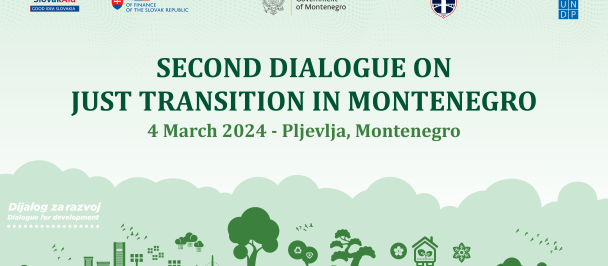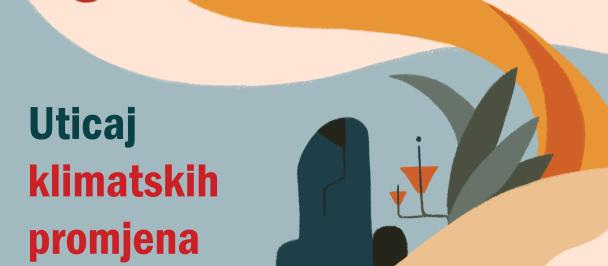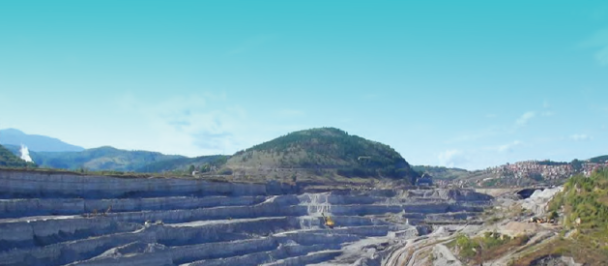Daniela Gašparíková, UNDP Resident Representative to Montenegro
Opening remarks at rould table "Ecological state 30 years later"
On behalf of UNDP, I’m pleased to take part in a discussion centered on understanding what are the accomplishments so far, and future challenges for Montenegro as an ecological state. This event takes place against the backdrop of reiterated expectations from citizens, local communities, and advocates representing diverse citizen voices, to move from commitments to concrete actions in preserving and restoring biodiversity and reversing climate change.
Recently published report of the Intergovernmental Panel on Climate Change is unequivocal in its conclusion - human activity has caused vast damage to the planet. And it’s only through human activity and choices we make today that we can reverse this course. The Government of Montenegro has recently committed to decreasing GHG emissions by 35% by 2030. As part of our Climate Promise, UNDP is committed to continue to work with Montenegro and provide support towards revising its Nationally Determined Contributions even sooner than the regular five-year cycle. Champions leading the way with positive examples of system transformation send a strong signal that change is truly possible!
Montenegro, like many low GHG emitting countries, has the least contribution to the rising global temperatures. Despite that, it is, unfortunately, bound to face consequences of climate change through its undesirable domino effect on human well-being, health and economy. That’s why we must adapt and build resilience to possible future impacts of human- and nature-induced hazards, with an ultimate goal to protect lives and prevent losses and damage to the infrastructure funded today.
In doing so, the argument about somewhat higher upfront costs is a valid one. However, the experience tells us that often already in medium-term, climate-smart investments do outweigh these upfront costs. The formulation of the country’s National Climate Adaptation Plan which is starting in earnest is an opportunity to set the baseline for making such smart adaptation investment choices.
Furthermore, as we move from the rescue to the recovery phase of the COVID-19 response, public policymakers and private sector now have also an opportunity to accelerate such investments, which, while already under way, are still not happening at the speed and scale required.
Most of the action in response to climate change is to take place in the country’s economic sectors. As important as mobilizing governments is, however, relying on them to solve the climate problem without the cooperation of the private sector - consisting of SMSEs and few larger companies which actually create economic value - is a losing proposition. In that regard, the recently announced formulation of the new economic recovery plan by the Government of Montenegro presents a platform to drive new investments into preservation of existing and creation of new jobs. With adopting innovative practices and business models, the private sector in Montenegro has already shown competitiveness and contribution to an incremental green transition.
In addition to combating climate change, we are facing challenges of halting the loss of biodiversity, which has evidently devastating impacts on our environmental, health and economy. Unfortunately, the value of biodiversity and its services is often only appreciated when they are lost.
The state of biological diversity in Montenegro has been monitored within a limited scope through the National Environmental Monitoring Programme. Based on available information, uncontrolled urbanization, and tourism development in natural habitats with associated infrastructure development; changes in land use practices, particularly in relation to agriculture and forestry; unsustainable and illegal use of natural resources; water, soil and air pollution are identified as main categories of anthropogenic threats.
UNDP has had the privilege of being a partner to Montenegro and will continue to do so. In that regard, let me remind you that our joint work has ensured an increase in protected areas to over 13% of the mainland of Montenegro with a significant strengthening of management skills and that the joint work of the government and UN agencies has led to the proclamation of the first protected areas at sea. It is important not to stop here, but to speed up the further process of proclaiming new protected areas.
With understanding the reasons for not meeting the previous targets (National biodiversity strategy and action plan), we must agree to redouble our efforts to deliver against previous targets and commitments rather than abandoning them. This means securing the strong commitment of Montenegro to the Convention on Biological Diversity.
Achieving the goals set by the new EU Biodiversity Strategy and new post-2020 global biodiversity framework once adopted by the end of this year will require the commitment and concerted action from all of us. Interactions, and often times tensions between economies and natural ecosystems are bound to stay. In that regard, the importance of transparence and participation of all relevant actor in decision-making and monitoring, rule of law and predictable enforcement – in other words good governance - are key to drive the vision that strives for green, low-carbon future, where economic growth doesn’t come at the cost of nature and where no one is left behind.
Looking ahead, following key ingredients of success:
- Ensuring consistency in signals from decision makers in terms of directing public and private funding into economic activities that acceleration achievement of Paris Agreement, EU Nature Directive, and other environmental conventions, rather than undermine them;
- Predictable and enforceable regulatory environment which is applied consistently and progressively towards achieving environmental standards;
- Just transition – gradual, but happening at speed towards the country’s carbon neutrality by 2050.
Sustainable Development Agenda 2030 underpinned by environmental conventions and Paris Agreement is universal. Its strong synergy with the EU accession benchmarks, and thus accelerating their achievement will put the country on the path to achieve also the Agenda 2030 goals.

 Locations
Locations

